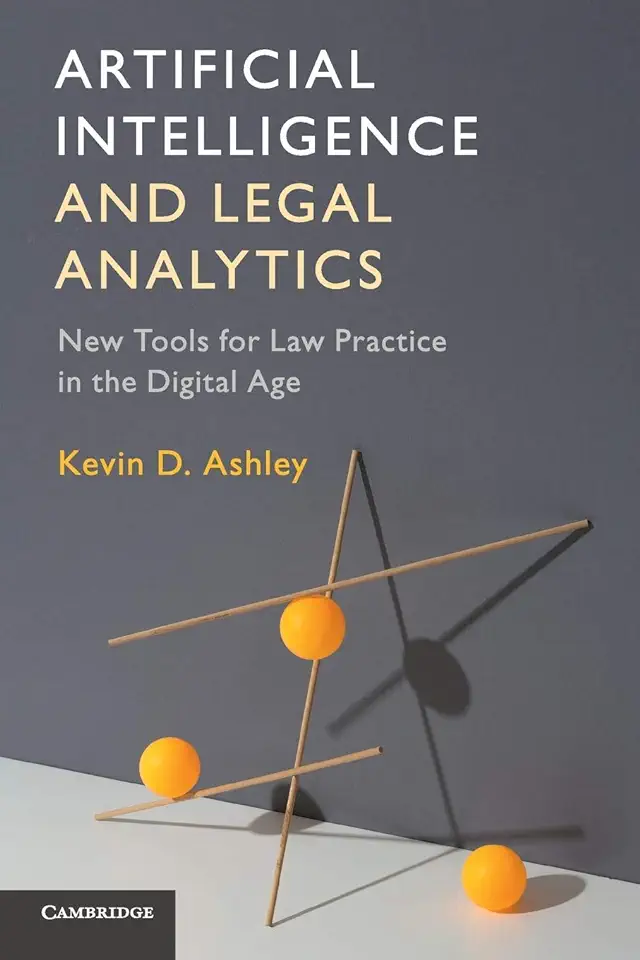
Artificial Intelligence and Legal Analytics- New Tools for Law Practice in the Digital Age by Kevin D. Ashley
Artificial Intelligence and Legal Analytics: New Tools for Law Practice in the Digital Age
In the rapidly evolving world of law, artificial intelligence (AI) and legal analytics are emerging as transformative forces that have the potential to revolutionize the way legal professionals research, analyze, and present information. Kevin D. Ashley's groundbreaking book, "Artificial Intelligence and Legal Analytics: New Tools for Law Practice in the Digital Age," provides a comprehensive and thought-provoking exploration of these cutting-edge technologies and their profound implications for the legal industry.
A Paradigm Shift in Legal Research and Analysis
Traditionally, legal research and analysis have been labor-intensive and time-consuming processes, often requiring lawyers to manually sift through vast amounts of unstructured data. However, AI and legal analytics offer a paradigm shift by automating many of these tasks, enabling lawyers to focus on higher-value activities that require critical thinking and strategic decision-making.
Key Features of AI and Legal Analytics
Ashley delves into the key features of AI and legal analytics, explaining how these technologies can be harnessed to enhance various aspects of legal practice. These include:
- Natural Language Processing (NLP): NLP enables computers to understand and interpret human language, allowing for the automated analysis of legal documents, contracts, and case law.
- Machine Learning (ML): ML algorithms can learn from data and improve their performance over time, making them ideal for tasks such as predicting legal outcomes and identifying relevant legal precedents.
- Data Visualization: AI-powered data visualization tools can transform complex legal data into interactive and easily understandable formats, facilitating decision-making and communication.
Practical Applications in the Legal Industry
Ashley provides numerous real-world examples of how AI and legal analytics are already being used in the legal industry, including:
- E-Discovery: AI can streamline the process of identifying and retrieving relevant electronic documents during litigation.
- Contract Review: AI-powered tools can assist lawyers in reviewing and analyzing contracts, flagging potential risks and inconsistencies.
- Legal Research: AI can help lawyers quickly find relevant case law, statutes, and regulations, saving valuable research time.
- Predictive Analytics: ML algorithms can be used to predict the outcomes of legal cases, aiding lawyers in making informed decisions about litigation strategies.
Ethical Considerations and the Future of AI in Law
While AI and legal analytics offer tremendous potential, Ashley also addresses the ethical considerations that arise with their use. He explores issues such as data privacy, algorithmic bias, and the potential for job displacement, providing a balanced perspective on the responsible adoption of these technologies.
Looking ahead, Ashley envisions a future where AI and legal analytics become integral to legal practice, empowering lawyers to deliver more efficient, accurate, and client-centric services. He emphasizes the importance of continuous learning and adaptation to stay ahead in this rapidly evolving landscape.
Conclusion
"Artificial Intelligence and Legal Analytics: New Tools for Law Practice in the Digital Age" is a must-read for legal professionals, law students, and anyone interested in the intersection of technology and law. Kevin D. Ashley's comprehensive and insightful analysis provides a roadmap for navigating the digital transformation of the legal industry, offering practical insights and actionable strategies for leveraging AI and legal analytics to achieve success in the modern legal landscape.
Enjoyed the summary? Discover all the details and take your reading to the next level — [click here to view the book on Amazon!]